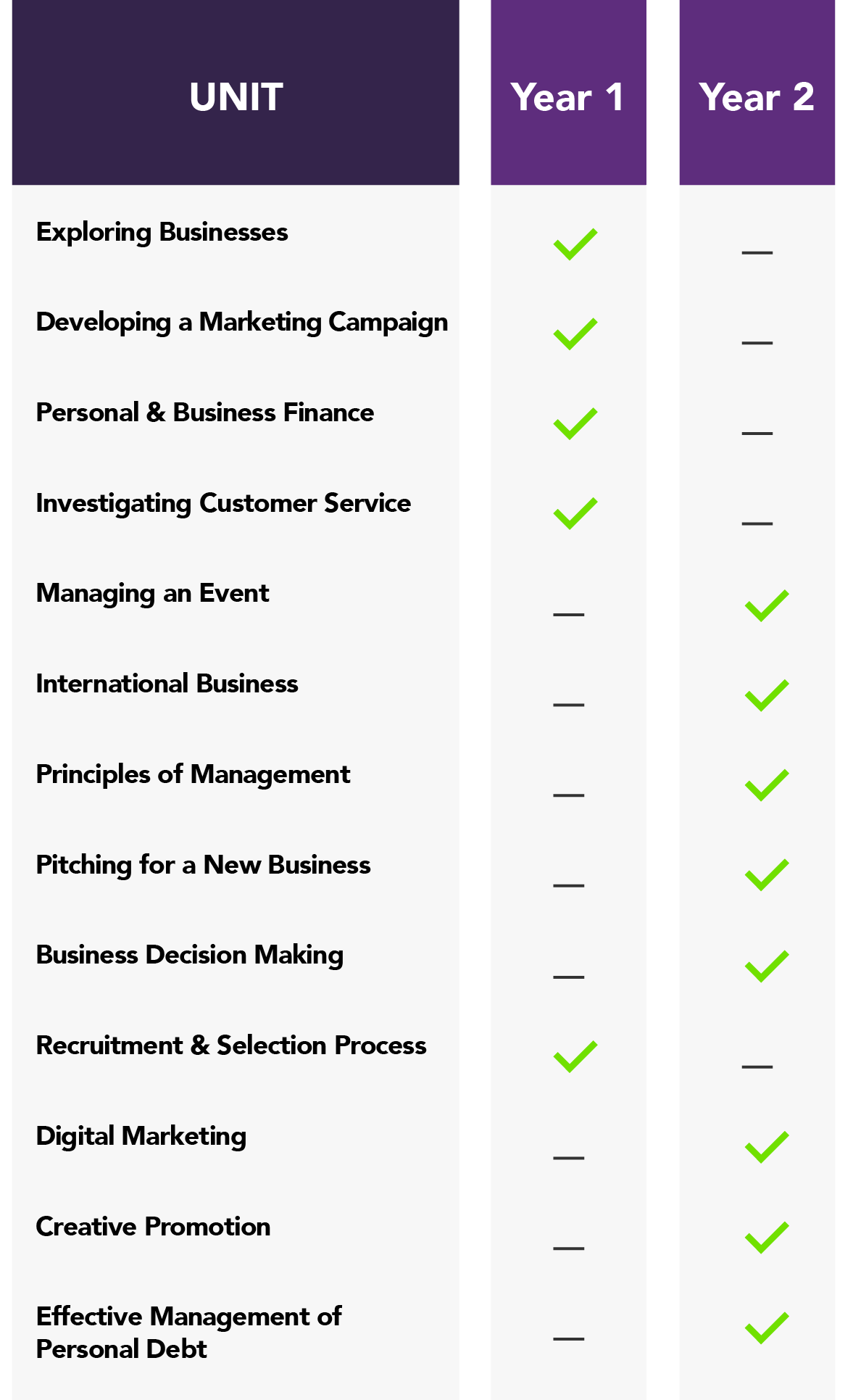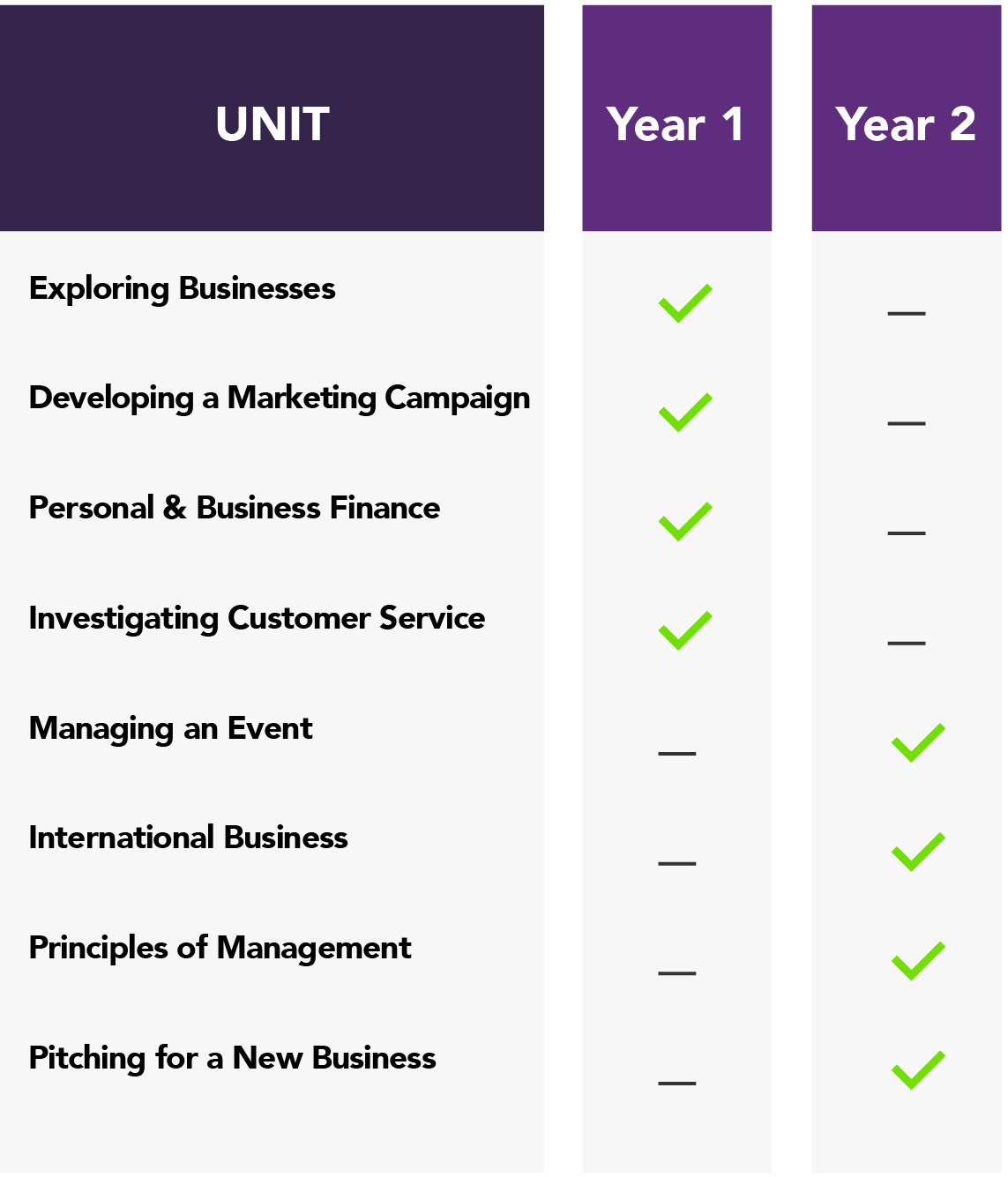
Business BTEC Level 3 (Diploma or Extended Diploma)
Diploma
2 A Level equivalent
Extended Diploma
3 A Level equivalent
Qualification
BTEC Level 3
Exam Board
Pearson
The BTEC National Diploma and the BTEC National Extended Diploma are both level 3 vocational qualifications designed to prepare learners for further study or entry into employment.
Both are two-year courses, with the National Diploma equalling two A Levels and the National Extended Diploma equal to three. The National Diploma is considered a substantial part of a full-time study programme, but would need to be studied alongside another qualification in order to meet entry requirements for university and types of employment. The National Extended Diploma is a more comprehensive qualification and is designed to be taken as a full-time standalone course that fully meets the entry requirements for most university degree programmes.
BTEC Nationals in Business cover practical and career-orientated content that prepares learners for the world of work. They are ideal qualifications for learners who want to develop skills directly relevant to roles in marketing, finance, management or entrepreneurship. The qualifications are also more suitable for learners who prefer applied learning that links theories to real-world business scenarios.
Moreover, the BTEC Nationals in Business encourages learners to gain an overview of how businesses succeed, how they are organised, how they communicate. Learners will look at the importance of innovation, the success and survival of businesses, and the associated risks and benefits.
BTEC National Extended Diploma
Learners cover 13 units in total on the BTEC National Extended Diploma in Business.

BTEC National Diploma
Learners cover 8 units on the BTEC National Diploma in Business.

This course is assessed both internally and externally. Many modules are assessed by internally marked coursework, while there are also tasks set and marked by Pearson, and an externally marked 2 hour written exam.
Throughout these two-year courses, learners will develop transferable skills such as collating, analysing, and interpreting data. Additionally, learners will significantly improve their confidence, presentation, and IT skills, preparing them for future challenges. Employers, universities, and colleges recognise these skills as highly valuable in today’s competitive job market.
Learners with a Level 3 Diploma in Business have access to a wide range of career, higher education and higher apprenticeship opportunities.
These qualifications carry UCAS points and are recognised by higher education providers as contributing to the entry criteria to many relevant courses, for example Business and Management, Human Resource Management, Business and Finance, Marketing and Retail Management.
Some Russell Group universities, such as Cardiff, accept learners who are successful in these courses. Learners should always check the entry requirements for degree programmes with specific higher education providers.
After this qualification, learners can progress directly into employment, however it is likely that many do so via higher study. Areas of employment include junior roles in marketing, administration, financial services, events management, human resources, and other related areas in the business sector.
5 C’s at GCSE, or equivalent vocational qualifications, including a grade D in GCSE Maths, and a grade D in GCSE English.
A grade C in a discursive subject like History, Religious Studies or English Literature can be used as an alternative for English.

